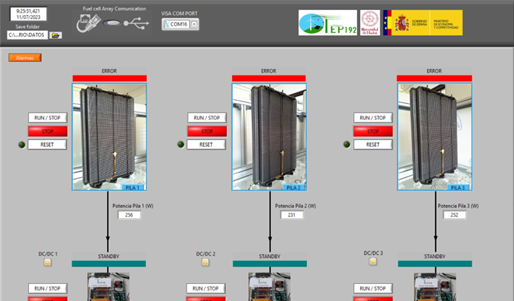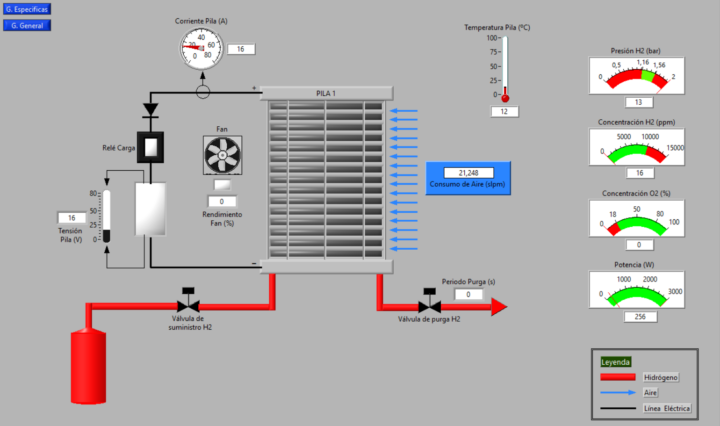The utilization of energy systems reliant on fossil fuels poses a growing environmental challenge. Consequently, there is a growing trend towards implementing renewable energy sources and sustainable models, such as the utilization of hydrogen and, consequently, fuel cells.
However, it is worth noting that fuel cells currently face a significant drawback in terms of cost and degradation processes, which typically follow specific patterns based on operational conditions.
Nonetheless, there is currently a dearth of hardware-software tools focused on discerning the relationship between operating conditions and the resultant degradation. These tools would enable degradation studies to be conducted directly on the device during operation within its final application, thereby facilitating the integration of fuel cell technology into various industries.

In a bid to address these challenges, researchers from the Center for Research in Technology, Energy, and Sustainability (CITES, in Spanish) at the Universidad de Huelva have devised two distinct, yet interconnected technologies.
On one side, researchers have created a modular power generation system based on fuel cells, with the capability for each module to operate at varying power outputs. This system incorporates a SCADA software interface that provides real-time status updates at both the module and overall system levels.
On the other hand, fuel cell monitoring, and control software have also been developed, featuring alarm functions and a comparison of polarization points in relation to the initial curve of each stack. This tool enables immediate, real-time comparisons between the actual curve of each fuel cell and the theoretical or expected one, allowing intuitive identification of the types of losses associated with the degradation of each fuel cell.
Both inventions have an active Spanish patent, and a European patent application has already been presented for both technologies. The current Technology Readiness Level (TRL) for both stands at TRL 6 – TRL 7. Researchers have successfully developed operational prototypes and validated their functionality in a real-world setting.
Benefits
- Offers increased flexibility and enhances system efficiency and optimization.
- Lower cost compared to similar commercial systems.
- An all-in-one system philosophy that enhances user safety.
- A low-consumption system that can be powered directly from a USB source.
The represented institution is looking for a collaboration that leads to commercial exploitation of the presented invention.
Institution: Universidad de Huelva
TRL: 6-7
Protection status: Patent Application
Contact: Laura Núñez / laura@viromii.com

